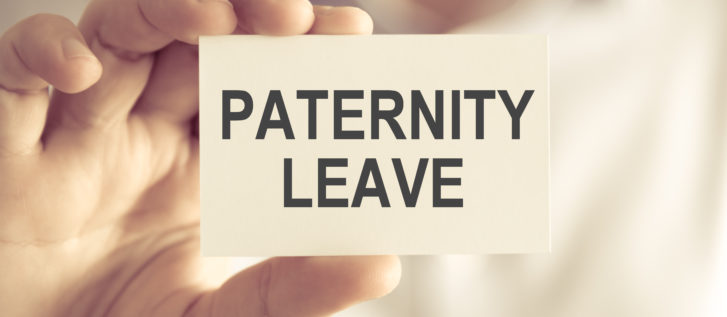
Exploring careers in construction
Construction is a huge industry that spans everything from architecture and house building...read more
New campaign targets dads and dads-to-be and encourages them to talk about perinatal mental health

A new campaign has launched encouraging dads to talk about their mental health. New parents and those expecting children need more access to support services according to the campaign by Benenden Health and charity the PANDAS Foundation.
The campaign focuses on perinatal mental health. That’s conditions that arise during pregnancy or in the first year after the birth of a child.
A survey of 1,368 parents revealed that only half of perinatal mental illness sufferers (53%) are seeking any support. Parents cited a range of reasons for not getting help. These include not thinking it was a serious problem (25%), not believing it would help (17%), feeling guilty for suffering at what should be a happy time (15%), being worried they’re not a good parent (12%) and embarrassment (9%).
Of those who have sought help, only a fifth (20%) spoke to their GP about their experience. Most individuals rely on the support of friends and family. Many said they took no action at all.
The impact of perinatal mental illness on the lives of parents is significant. A third of sufferers say it led to their relationship deteriorating with their partner. A further third said they had become isolated from friends as a result. One in ten said it had negatively impacted their work performance.
Only around ten per cent agreed there’s enough support for parents. Two thirds said better signposting and awareness of symptoms would’ve helped them.
The most common symptoms according to parents are anxiety (64%), a lack of energy (58%), loneliness (49%), depression (36%), not wanting to be around other people (32%), an unhealthy relationship with food (24%), frightening thoughts (20%), rejecting their partner (17%), not being able to bond with their child (12%) and suicidal thoughts (8%).
Annie Belasco, Head of Charity at perinatal mental illness charity, PANDAS Foundation, added: “This is an especially important time with demand for support services rising significantly during the Covid-19 pandemic. So we are keen to encourage anyone who is struggling at this time to seek support and not suffer in silence.”
Dad Scott Mair spoke up about his experience of mental illness. Scott and his partner experienced perinatal mental illness upon the birth of their seventh son. Scott said, “My wife experienced a number of difficulties during childbirth, with the mental trauma faced by both of us and the inconsistency of care still affecting us to this day.
“My personal mental trauma started with the initial concern that my wife was very unwell post-Caesarean section. The anguish and dismay caused by nobody listening to my concerns when I almost lost her caused an emotional breakdown I felt I’d never recover from.”
He added, “Thankfully, since then, I have made some great contacts and actively work with charities and local maternity units to improve the support given to all in maternity, including dads, who often feel weighed down by the stigma attached to them talking about their mental health.
“The long term effects of not dealing with perinatal mental health can be huge. I hope that this campaign will help people understand more about it, accept that it is not something to be embarrassed about and encourage better, accessible and more consistent support for those in need.”

Jamie Shields from AMS talks about how being diagnosed with ADHD and autism has been a game-changer for him and how his workplace has empowered him to... read more

workingdads.co.uk outlines some of the many roles available in construction and what you need to get them. read more

What are your rights to parental leave and pay if you have more than one job? read more

The Channel 4 programme How to be a man saw Danny Dyer question a range of people about modern-day masculinity. It was a mixed bag, but the... read more